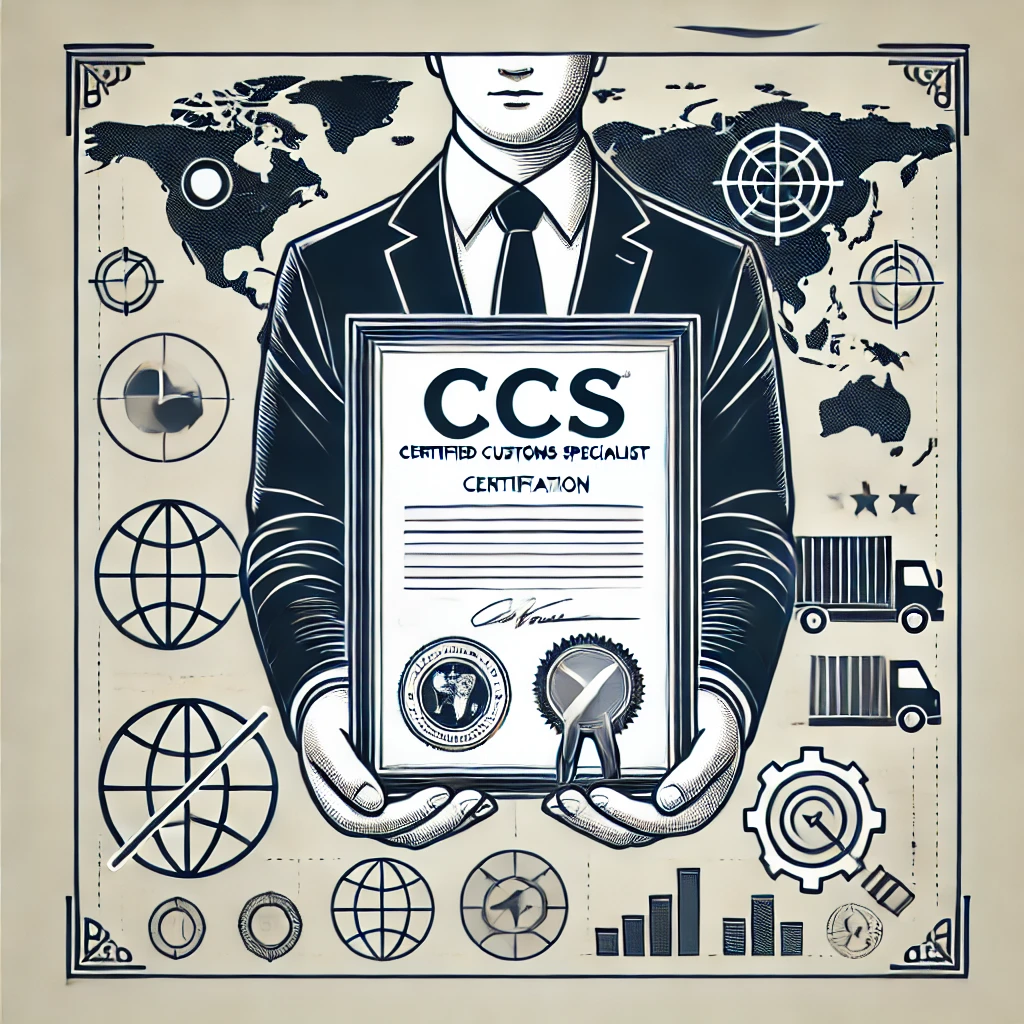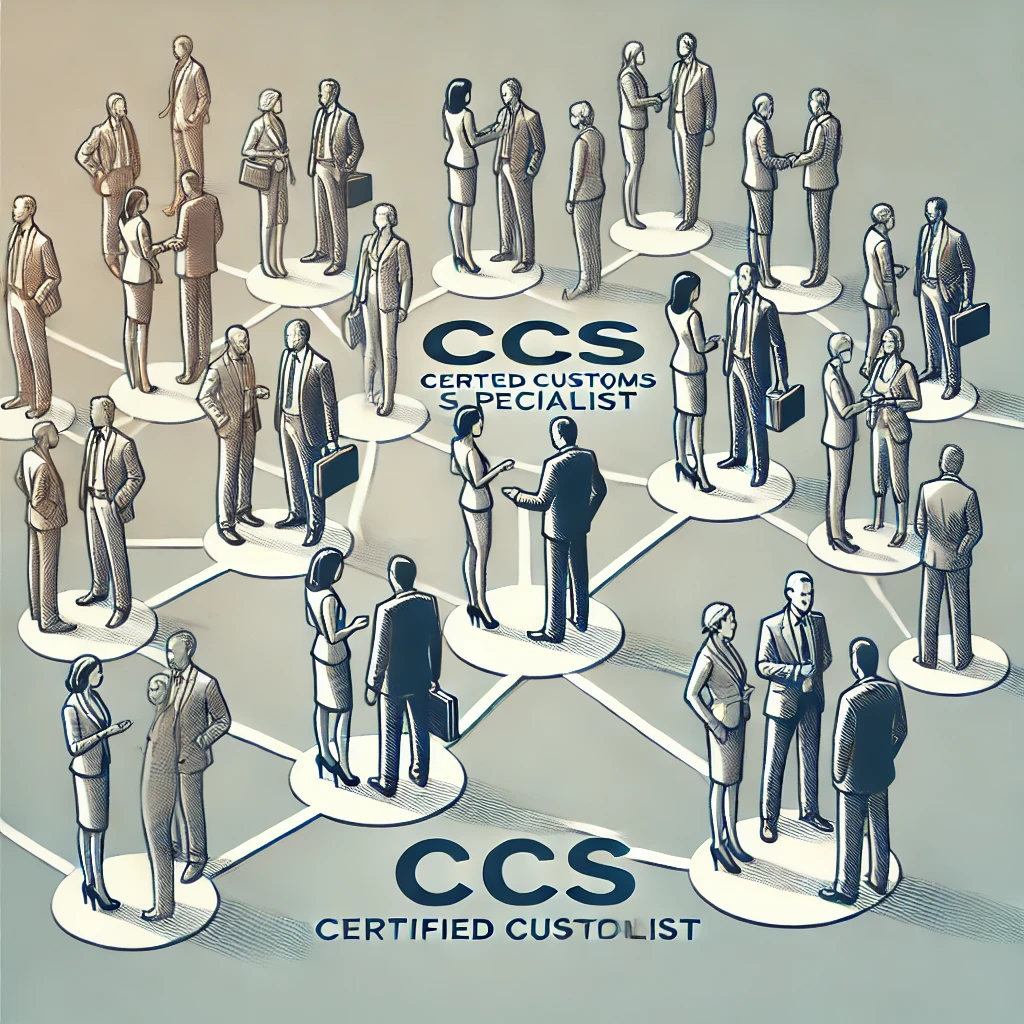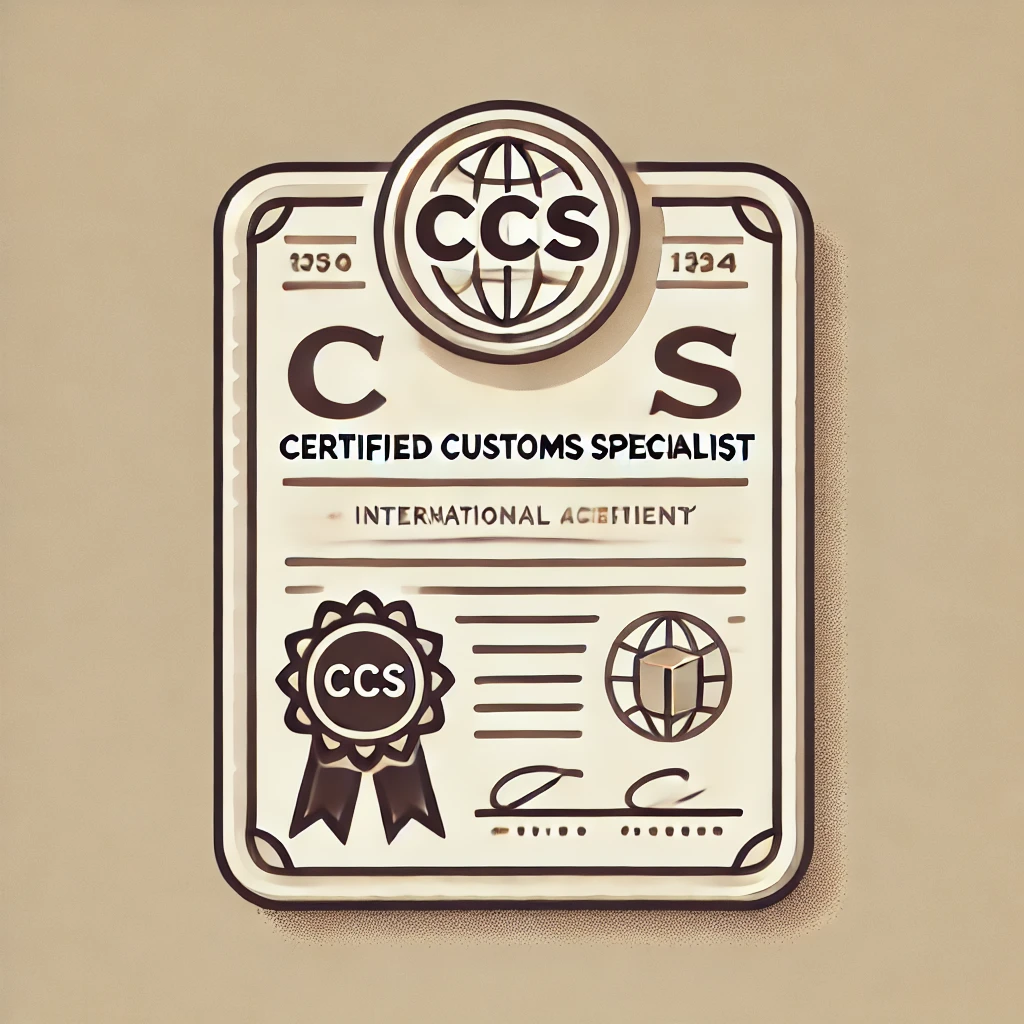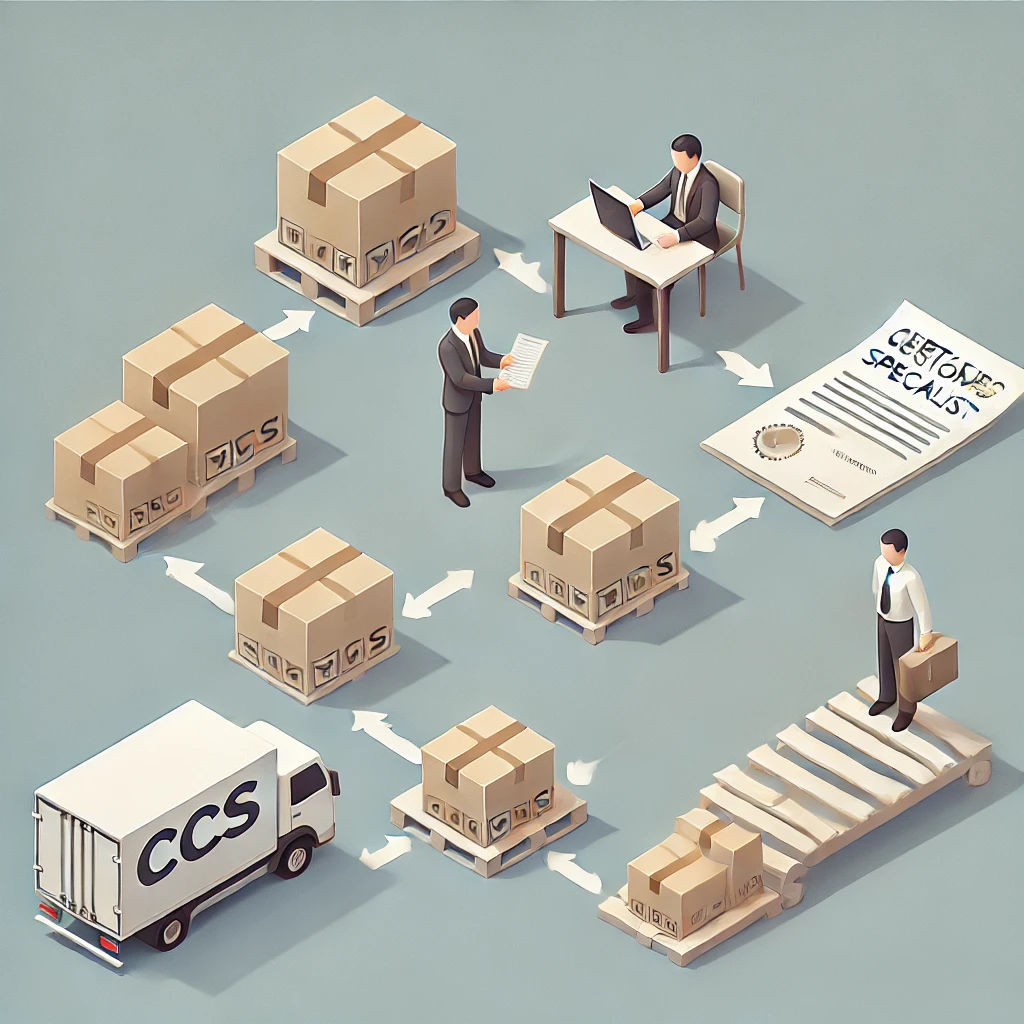CCS Certification: The Ultimate Guide to Becoming a Certified Customs Specialist

What is CCS Certification?
CCS stands for Certified Customs Specialist. The CCS certification is a professional credential offered by the National Customs Brokers & Forwarders Association of America (NCBFAA) Educational Institute. It’s designed for individuals who want to demonstrate their expertise in customs regulations, compliance, and international trade practices.
Key Aspects of CCS Certification:
- Recognized industry standard for customs knowledge
- Validates expertise in customs laws and regulations
- Enhances career prospects in international trade
- Demonstrates commitment to professional development
Why Pursue CCS Certification?
Obtaining CCS certification offers numerous benefits:
- Career Advancement: Enhances your resume and opens up new job opportunities
- Industry Recognition: Demonstrates your expertise to employers and clients
- Knowledge Enhancement: Provides comprehensive understanding of customs practices
- Networking Opportunities: Connects you with other certified professionals
- Increased Earning Potential: Can lead to higher salaries and better positions
CCS Certification Requirements
To be eligible for CCS certification, candidates typically need to meet the following requirements:
- Experience: Usually 2-3 years of customs-related work experience
- Education: High school diploma or equivalent (higher education can sometimes substitute for experience)
- Examination: Pass the CCS certification exam
- Continuing Education: Commit to ongoing professional development
The CCS Certification Course
The CCS certification course is designed to prepare candidates for the exam. Here’s what you can expect:
Course Content:
- U.S. Customs regulations and procedures
- Tariff classification
- Valuation
- Free Trade Agreements
- Special trade programs
- Customs bonds
- Recordkeeping requirements
- Customs broker responsibilities
Course Formats:
- In-person classes: Offered at various locations
- Online courses: Self-paced or instructor-led options
- Hybrid programs: Combination of online and in-person instruction

The Exam
The CCS exam is a crucial component of earning your certification. Here’s what you need to know:
Exam Format:
- Multiple-choice questions
- Typically 3-4 hours long
- Covers all aspects of customs regulations and procedures
Exam Topics:
- Entry requirements
- Classification
- Valuation
- Special trade programs
- Customs bonds
- Broker compliance
- Fines, penalties, and forfeitures
Exam Preparation:
- Study the NCBFAA CCS course materials
- Review the Harmonized Tariff Schedule
- Familiarize yourself with Customs and Border Protection (CBP) regulations
- Take practice exams
How to Obtain
Follow these steps to earn your CCS certification:
- Meet Prerequisites: Ensure you have the required experience and education
- Enroll in CCS Course: Register for the NCBFAA CCS certification course
- Complete Coursework: Attend classes or complete online modules
- Study for Exam: Review course materials and practice with sample questions
- Register for Exam: Sign up for the CCS certification exam
- Take the Exam: Complete the exam within the allotted time
- Receive Results: Wait for your exam results (typically within a few weeks)
- Certification Awarded: Upon passing, you’ll receive your CCS credential
The CCS certification course is designed to prepare candidates for the exam. Here’s what you can expect:
Course Content:
- U.S. Customs regulations and procedures
- Tariff classification
- Valuation
- Free Trade Agreements
- Special trade programs
- Customs bonds
- Recordkeeping requirements
- Customs broker responsibilities
Course Formats:
- In-person classes: Offered at various locations
- Online courses: Self-paced or instructor-led options
- Hybrid programs: Combination of online and in-person instruction
CCS Certification Cost
The cost of obtaining includes:
- Course Fees: Varies depending on format (online vs. in-person)
- Exam Fee: Typically a separate fee for the certification exam
- Study Materials: Additional costs for books and practice exams
- Renewal Fees: Annual or bi-annual fees to maintain certification
Maintaining Your CCS Certification
Once you’ve earned your, you’ll need to maintain it:
- Continuing Education: Complete required continuing education credits
- Renewal: Renew your certification periodically (usually annually or bi-annually)
- Code of Ethics: Adhere to the NCBFAA’s professional code of conduct
- Stay Updated: Keep abreast of changes in customs regulations and practice
CCS vs. Other Customs Certifications
It’s important to understand how certification compares to other credentials:
CCS vs. Licensed Customs Broker:
- is a professional, while a Customs Broker License is a government-issued license
- Customs Broker License allows you to conduct customs business; CCS demonstrates expertise but doesn’t grant specific legal privileges
CCS vs. Certified Import Specialist (CIS):
- CCS focuses on broader customs knowledge, while CIS is more specialized in import procedures
- Both are valuable, but CCS is generally considered more comprehensiv

Different Professionals
CCS certification is valuable for various professionals in the trade and customs field:
- Customs Brokers: Enhances credibility and knowledge
- Import/Export Managers: Improves understanding of customs processes
- Trade Compliance Specialists: Validates expertise in regulations
- Logistics Professionals: Provides valuable insights into customs aspects of logistics
- Consultants: Demonstrates expertise to potential clients
Success Stories: Professionals
Real-world examples of how CCS certification has benefited professionals:
- Career Advancement: John D. moved from entry-level to management after obtaining CCS
- Salary Increase: Sarah M. reported a 15% salary bump post-certification
- Business Growth: Tom K. expanded his consulting business with CCS credentials
- Job Opportunities: Lisa R. landed a coveted position at a multinational corporation
Future Trends in Customs and C
The field of customs and international trade is evolving. Here’s how is adapting:
- Digital Customs: Increased focus on electronic systems and processes
- Trade Agreement Changes: Updates to reflect new and modified trade agreements
- Security Measures: Greater emphasis on supply chain security
- Sustainability: Emerging focus on environmental regulations in trade

Frequently Asked Questions About CCS Certification
- Q: How long does it take to get CCS certified? A: Typically 3-6 months, depending on your study pace and experience level.
- Q: Is CCS certification recognized internationally? A: While focused on U.S. customs, it’s respected globally in the international trade community.
- Q: Can I take the CCS exam without taking the course? A: It’s possible but not recommended. The course provides crucial preparation for the exam.
- Q: How often do I need to renew my CCS certification? A: Usually annually or bi-annually, depending on NCBFAA requirements.
- Q: Is CCS certification worth it for someone new to the customs field? A: Yes, it can provide a strong foundation and demonstrate commitment to the field.
Conclusion: Empowering Your Career with CCS Certification
represents a significant achievement in the customs and international trade field. By obtaining this credential, you demonstrate your expertise, commitment to professional growth, and readiness to tackle the complex challenges of global trade.
Whether you’re an experienced customs professional looking to validate your skills or a newcomer aiming to establish yourself in the field, offers a pathway to enhanced knowledge, career opportunities, and professional recognition.
Remember, the journey to requires dedication and hard work, but the rewards in terms of career advancement, industry respect, and personal satisfaction make it a worthwhile pursuit for any ambitious customs professional.
As you consider taking this important step in your career, reflect on how CCS certification aligns with your professional goals and how it can open new doors in the ever-evolving world of international trade and customs compliance.
